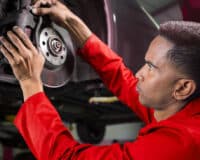In today’s economy, reducing fuel consumption is not just about saving money—it’s also about being environmentally responsible. Whether you’re a daily commuter or an occasional driver, these practical tips can help you get more miles per gallon (MPG) and lower your carbon footprint.
1. Regular Maintenance
Keeping your vehicle in top condition is crucial. Regular oil changes, air filter replacements, and ensuring that your spark plugs are functioning correctly can significantly improve fuel efficiency. A well-maintained engine runs more smoothly and burns fuel more efficiently.
2. Proper Tire Inflation
Under-inflated tires can decrease fuel efficiency by up to 3%. Check your tire pressure monthly and keep them inflated to the manufacturer’s recommended levels. Properly inflated tires reduce rolling resistance, which can save you money at the pump.
3. Lighten the Load
Extra weight in your vehicle can reduce fuel efficiency. Remove unnecessary items from your trunk and avoid carrying heavy loads when not needed. For every extra 100 pounds, your fuel efficiency can drop by around 1%.
4. Smooth Driving Habits
Aggressive driving, including rapid acceleration and braking, can lower your fuel efficiency by up to 30% on the highway and 40% in the city. Drive smoothly, accelerate gently, and anticipate stops to keep your fuel consumption in check.
5. Use Cruise Control
On long stretches of highway, using cruise control can help maintain a constant speed and improve fuel efficiency. It reduces the tendency to speed up and slow down frequently, which can burn more fuel.
6. Reduce Idling
Idling gets you 0 miles per gallon. If you’re waiting for someone or stuck in traffic for more than a minute, it’s better to turn off your engine. Modern vehicles are designed to handle frequent restarts without excessive wear.
7. Plan Your Trips
Combine errands into one trip rather than several short ones. Cold starts use more fuel, so a warm engine is more efficient. Additionally, planning your route to avoid traffic and construction zones can help reduce the time and fuel spent on the road.
8. Use Air Conditioning Wisely
Air conditioning can increase fuel consumption, especially at lower speeds. Use it sparingly, and consider using the vehicle’s ventilation system with the windows down at lower speeds. At higher speeds, it’s more efficient to use AC than having windows open, as open windows increase drag.
Final Thoughts
Implementing these tips can help you save on fuel costs and reduce your vehicle’s environmental impact. Regular vehicle maintenance, smart driving habits, and planning your trips effectively are all essential strategies. At West AutoTech, we’re committed to helping you keep your vehicle running efficiently. For professional maintenance and repair services, visit us today.





Comments are closed.